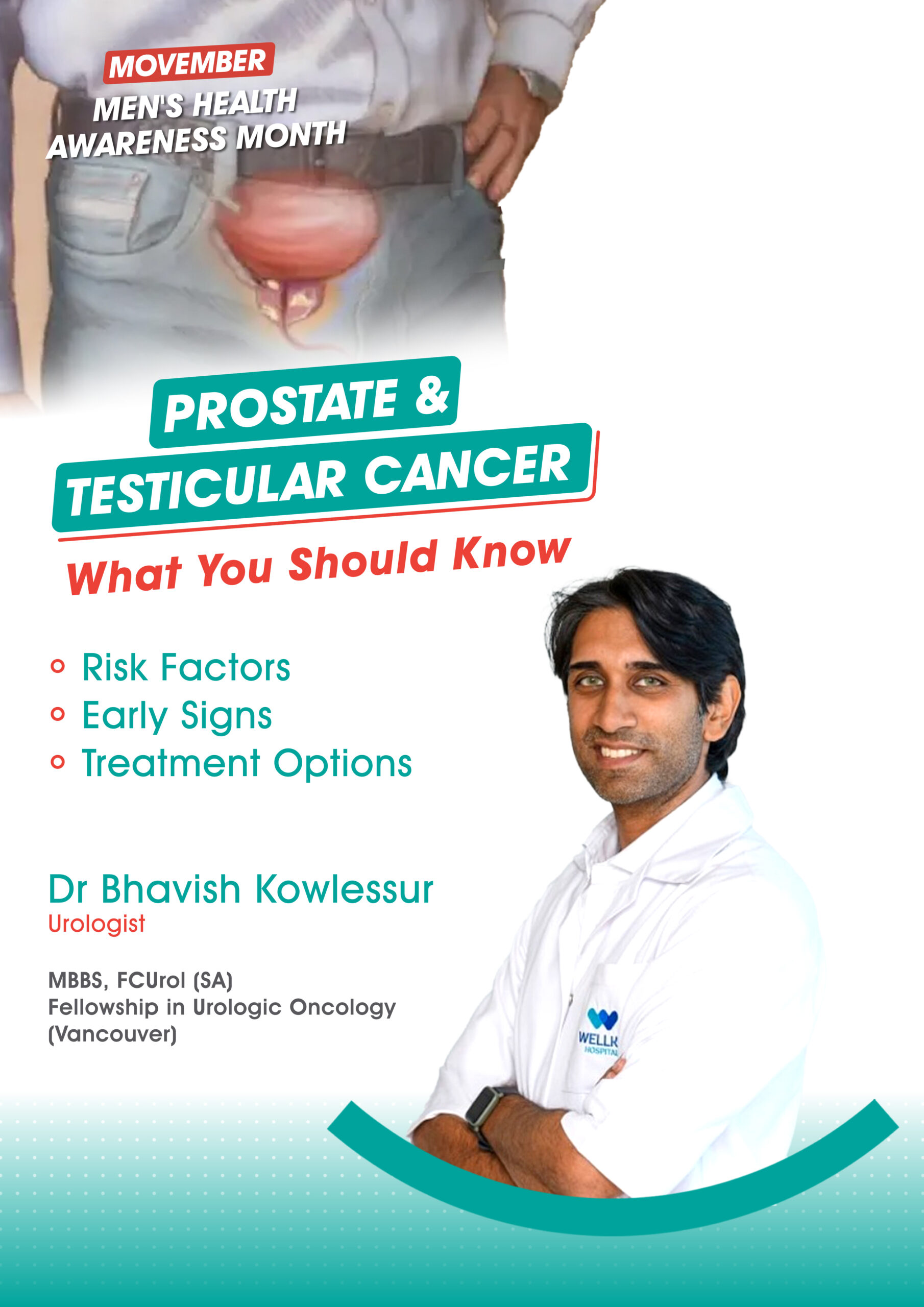
As Movember shines a spotlight on men’s health, MoSanté is dedicated to raising awareness of two common yet frequently overlooked issues: prostate and testicular cancer. Early detection can greatly enhance outcomes, but many men remain reluctant to seek help or discuss their concerns.
To provide expert insights, we spoke with Dr Bhavish Kowlessur, a prominent urologist, about the significance of early detection and how men can take proactive steps to manage their physical and mental health.
- What are the key risk factors for prostate cancer and when should men start screening?
In Mauritius, the key risk factors for prostate cancer include advancing age, family history, and ethnicity. Men over the age of 50 are at increased risk, particularly those with close relatives who have had prostate cancer. The incidence of prostate cancer is higher among men of African descent, which is relevant given the diverse population in Mauritius.
- Can you briefly explain the prostate cancer screening tests and their effectiveness?
Prostate cancer screening in Mauritius typically involves the prostate-specific antigen (PSA) blood test and the digital rectal exam (DRE). The PSA test measures the level of PSA in the blood, which can be elevated in men with prostate cancer. However, elevated PSA levels can also result from benign conditions, making the test not entirely specific. The DRE involves a physician palpating the prostate through the rectum to detect abnormalities. While these tests can aid in early detection, they are not definitive and can sometimes lead to overdiagnosis and overtreatment.
- What early signs of prostate or testicular cancer should men look out for?
There are no early signs of prostate cancer hence the importance of screening. For testicular cancer, signs include a lump or swelling in the testicle, a feeling of heaviness in the scrotum.
- What are the main treatment options for prostate and testicular cancer and how do they affect quality of life?
Treatment options for prostate cancer in Mauritius include active surveillance, surgery (radical prostatectomy), radiation therapy, and hormone therapy. Testicular cancer treatments often involve surgery to remove the affected testicle, radiation therapy, and chemotherapy. However, with appropriate management and support, many men can maintain a good quality of life.
- How does the cancer stage at diagnosis impact treatment and prognosis?
The stage at which cancer is diagnosed significantly impacts treatment options and prognosis. Early-stage cancers are mostly treated with curative intent and have better outcomes. For instance, localised prostate cancer has a high survival rate, while advanced stages may require more aggressive treatment and have a lower survival rate. Early detection is therefore critical for improving prognosis.
- What lifestyle changes can help prevent or manage these cancers?
Adopting a healthy lifestyle can help reduce the risk of prostate and testicular cancers. This includes maintaining a healthy weight, engaging in regular physical activity, eating a balanced diet rich in fruits and vegetables, and avoiding smoking and excessive alcohol consumption. These changes can also aid in managing the disease and improving overall health.
- Why are men often reluctant to discuss health and how can we encourage more openness?
Men often hesitate to discuss health issues due to societal norms and perceptions of masculinity, which can discourage them from seeking help. Encouraging openness involves creating supportive environments, promoting health education, and challenging stereotypes that prevent men from talking about their health. In Mauritius, health promotion campaigns and community support can play a crucial role in fostering a culture of openness and support.
- What advice would you give men to manage their physical and mental health after a cancer diagnosis?
Managing physical and mental health after a cancer diagnosis involves seeking support from healthcare professionals, joining support groups, staying physically active, and maintaining a healthy diet. It is also important to address mental health by talking to counsellors or therapists and staying connected with family and friends. Comprehensive care that includes both physical and mental health support is essential for recovery and well-being.

